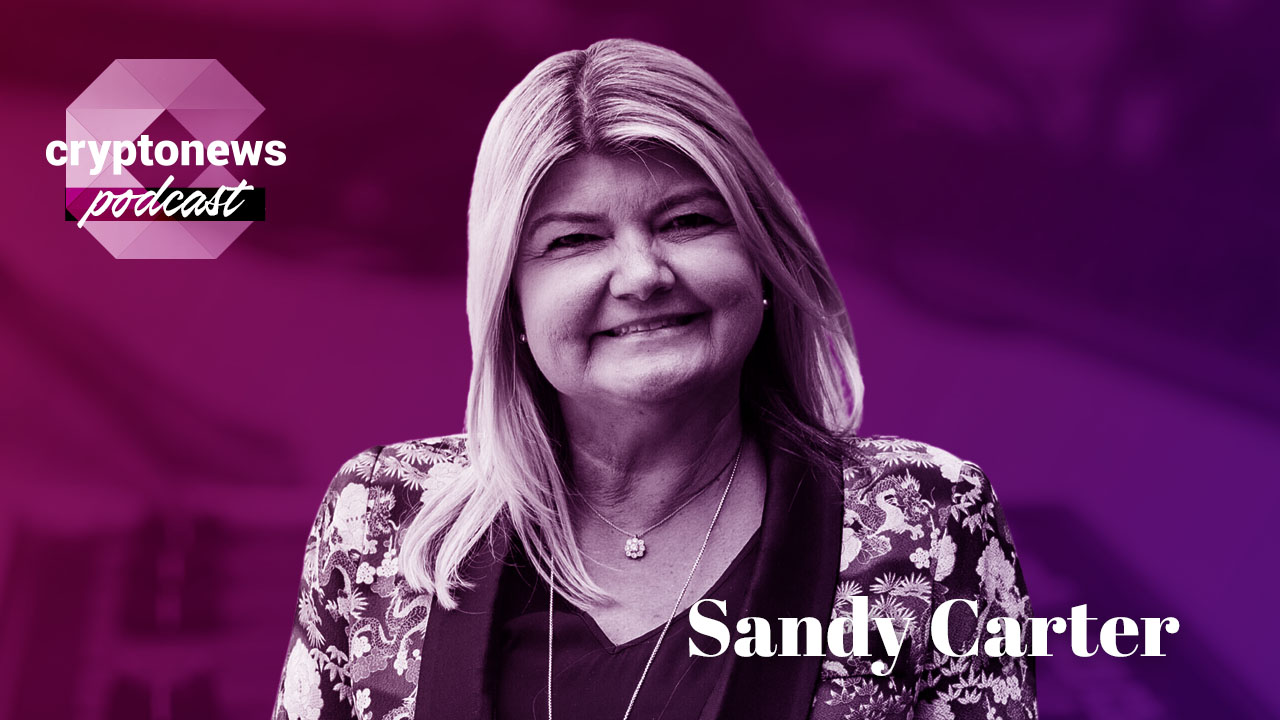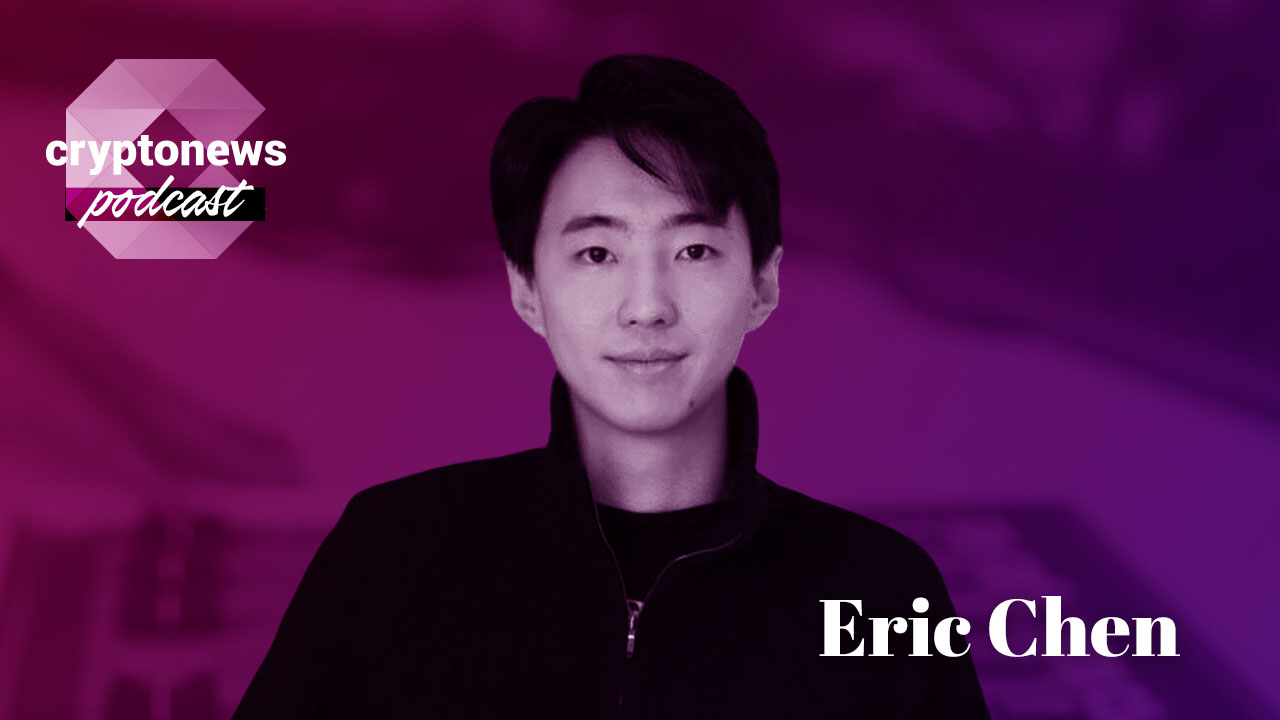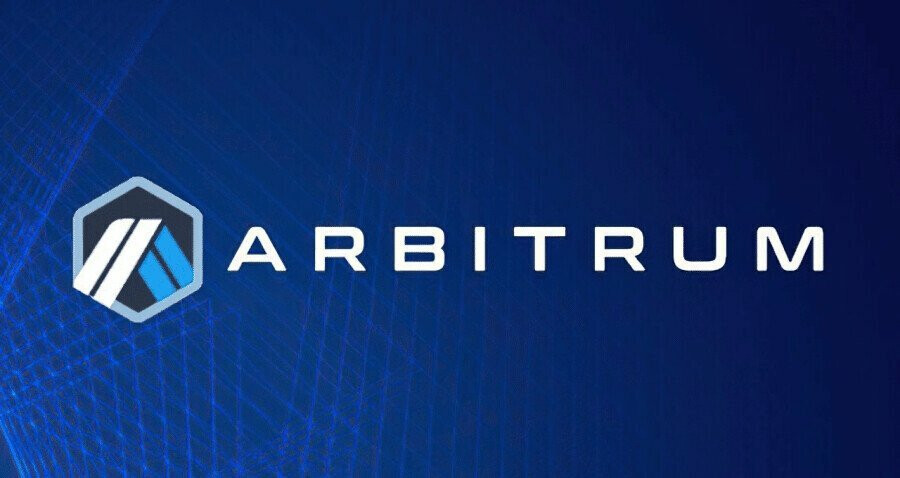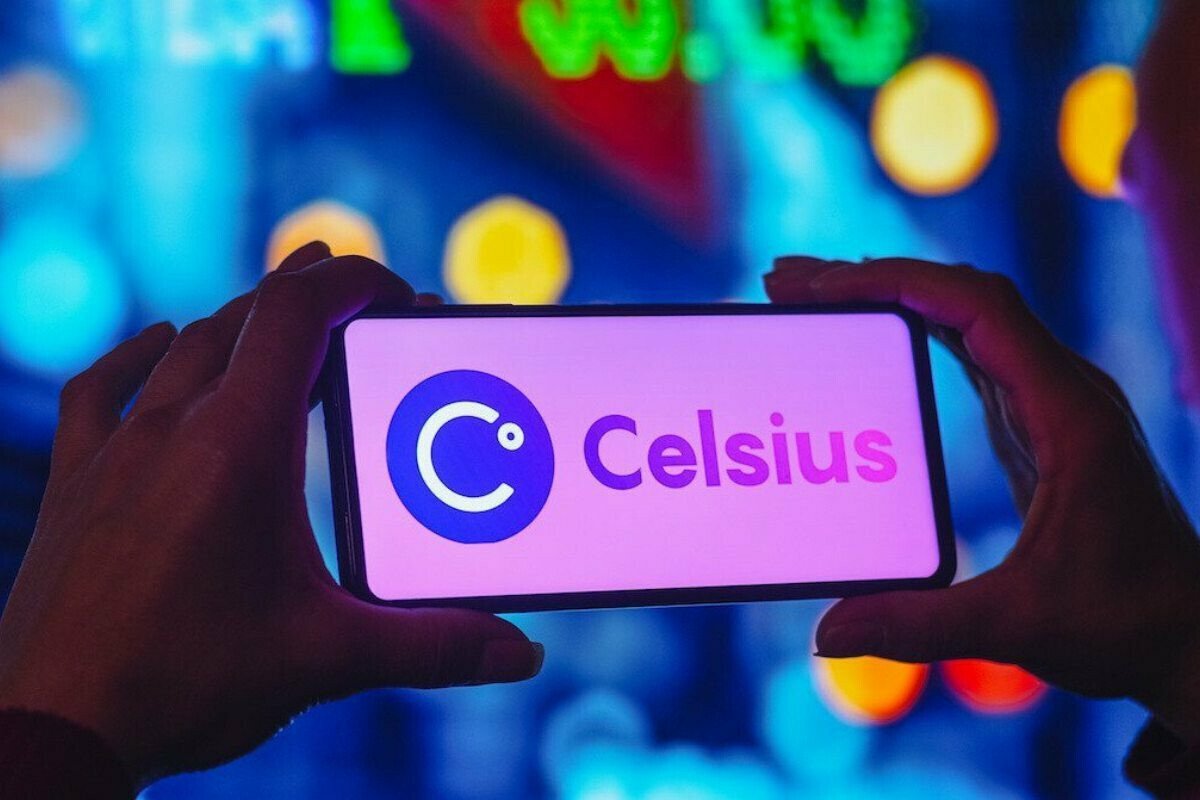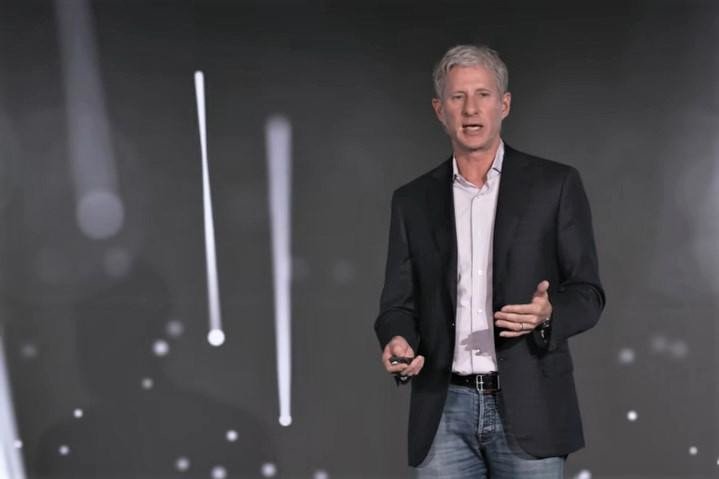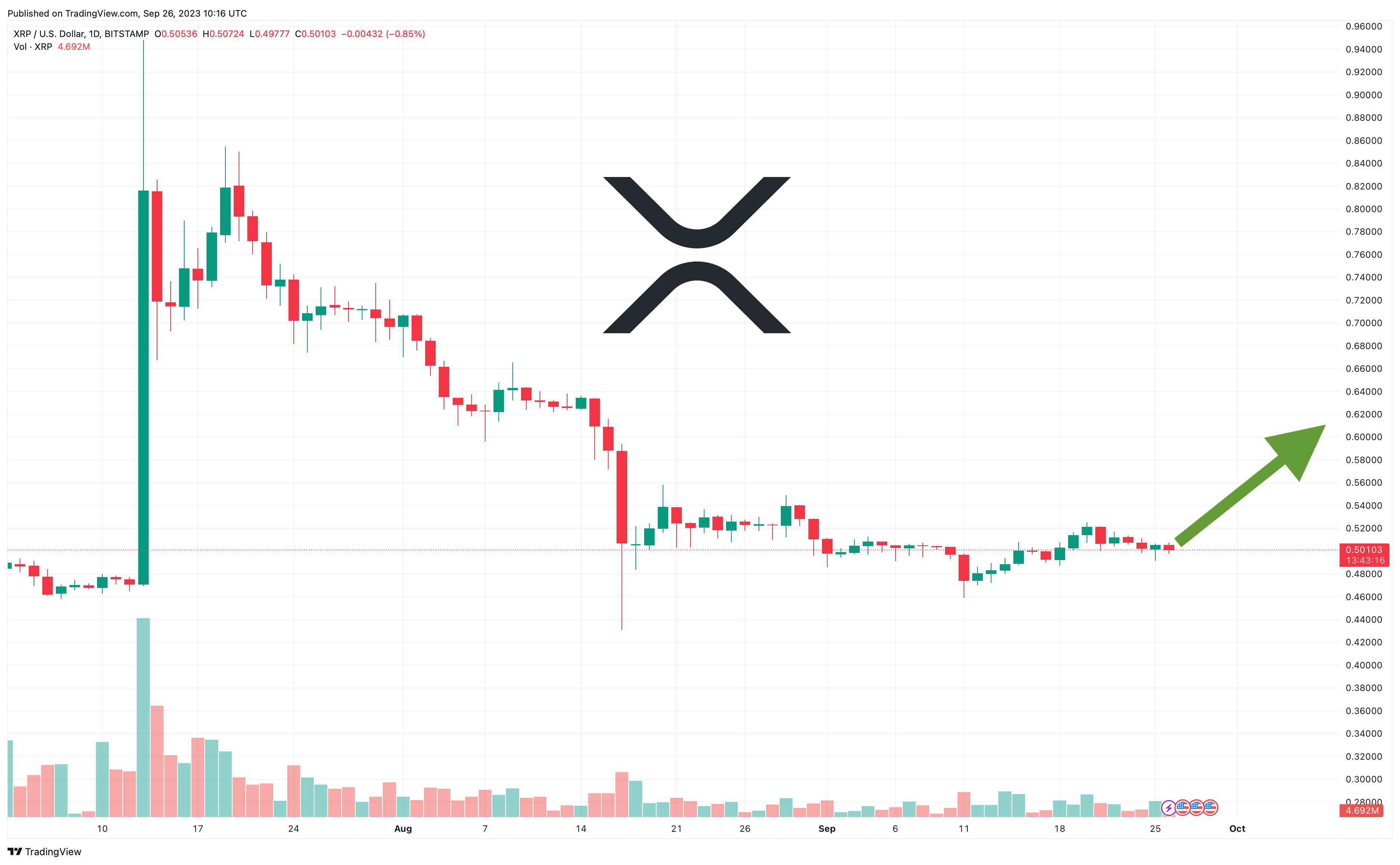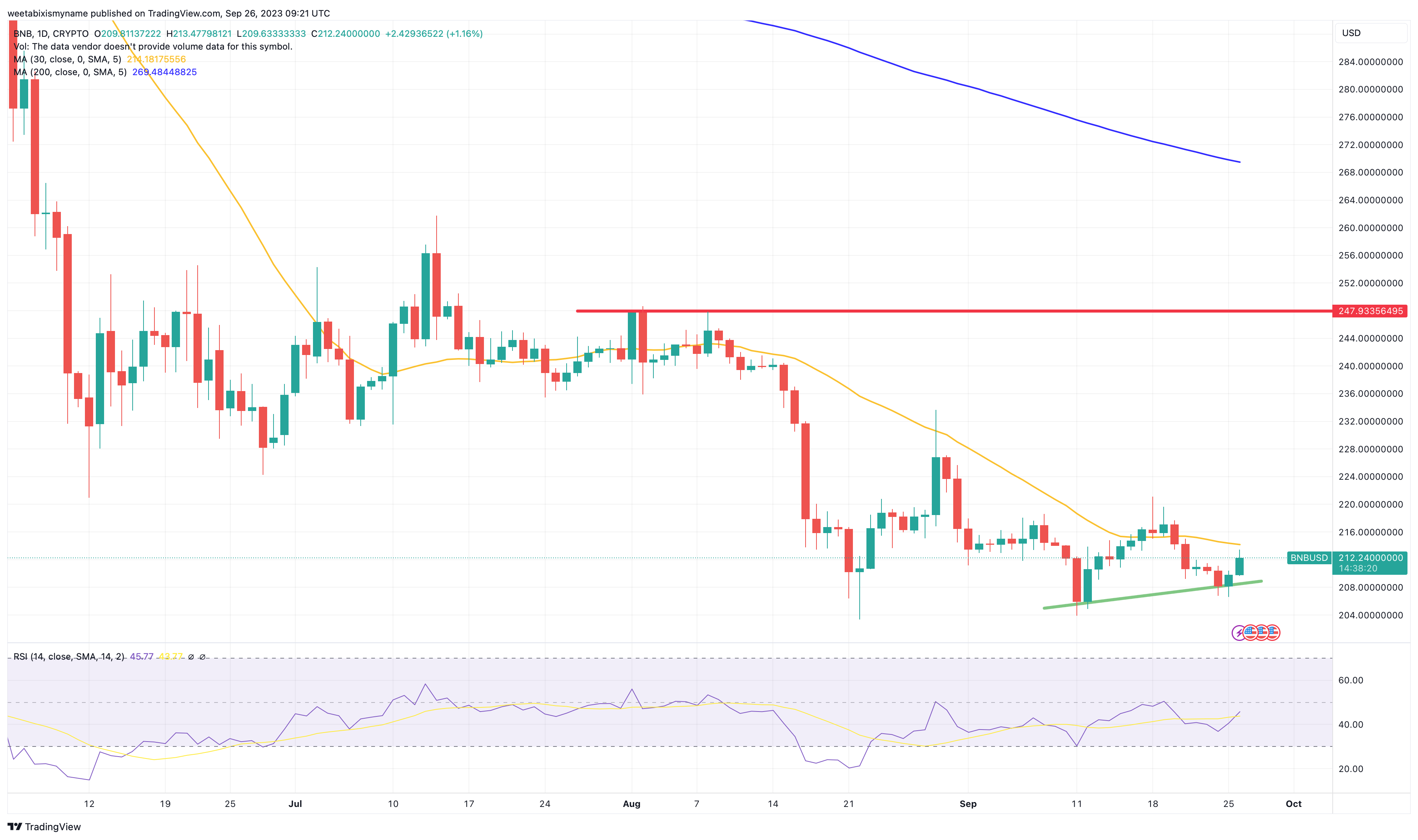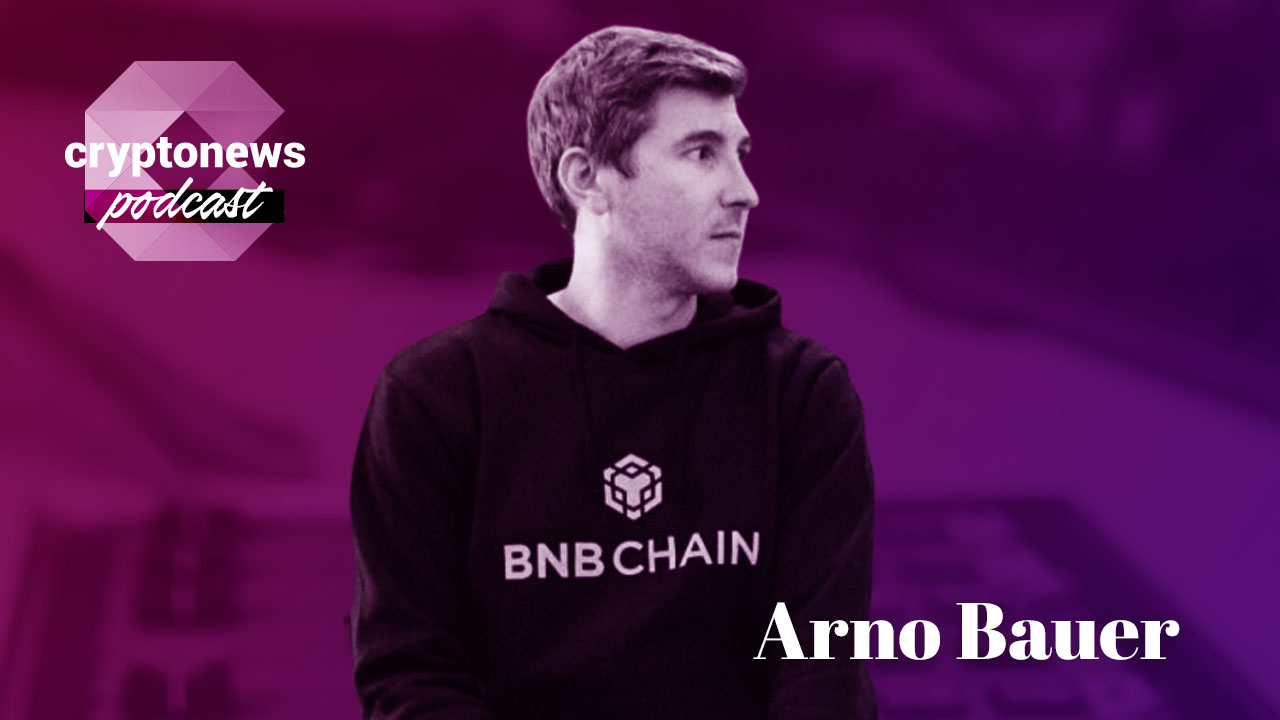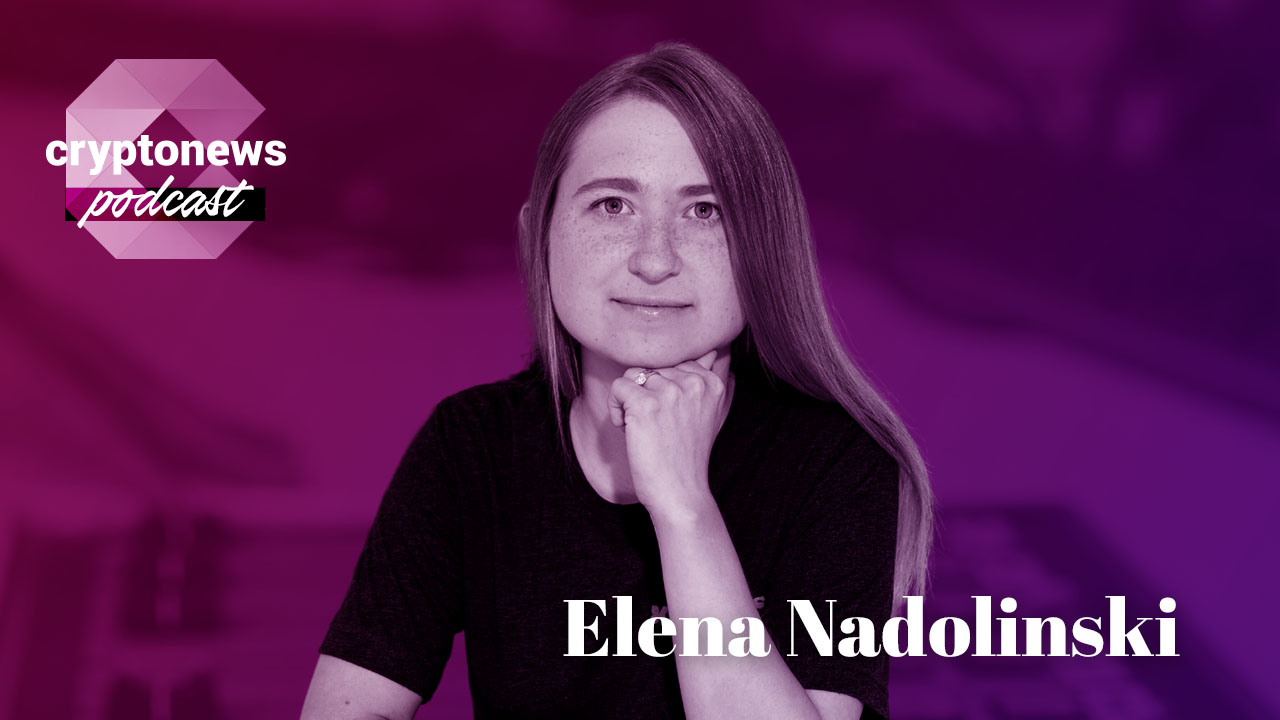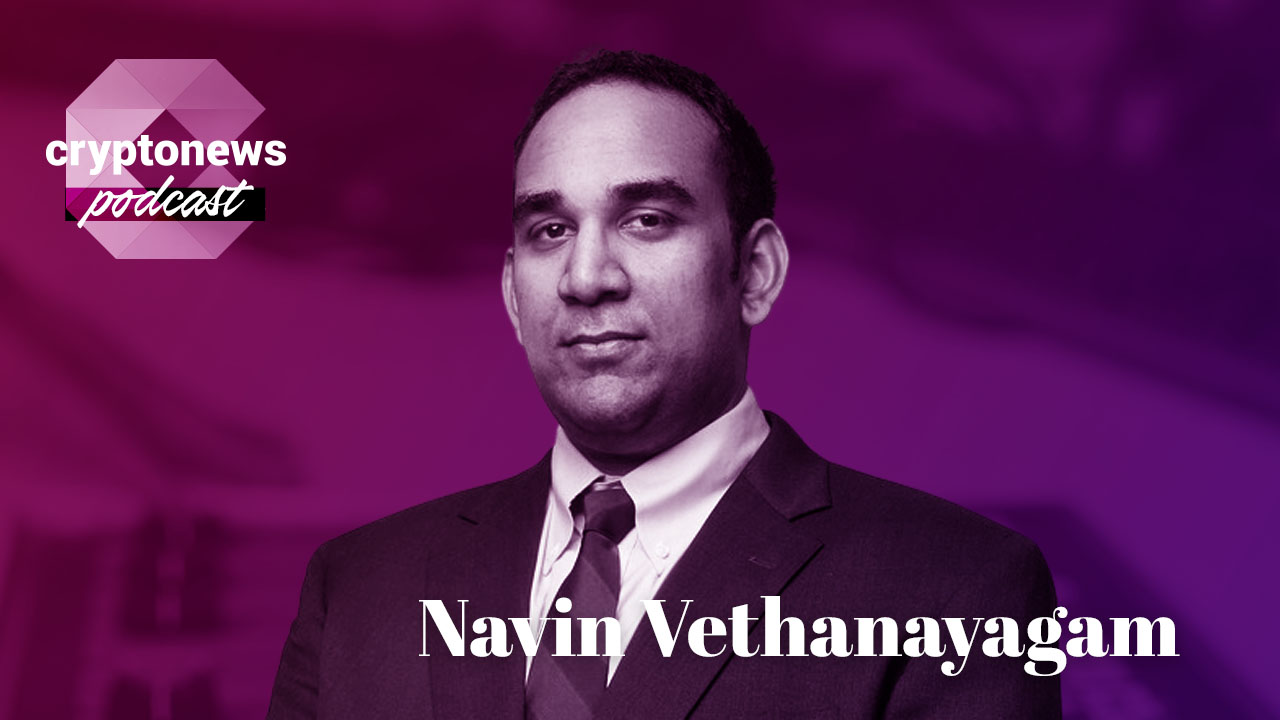John Reynolds, Product Manager for Aleo, on ZK Tech, Privacy, and Safeguarding Personal Information | Ep. 268
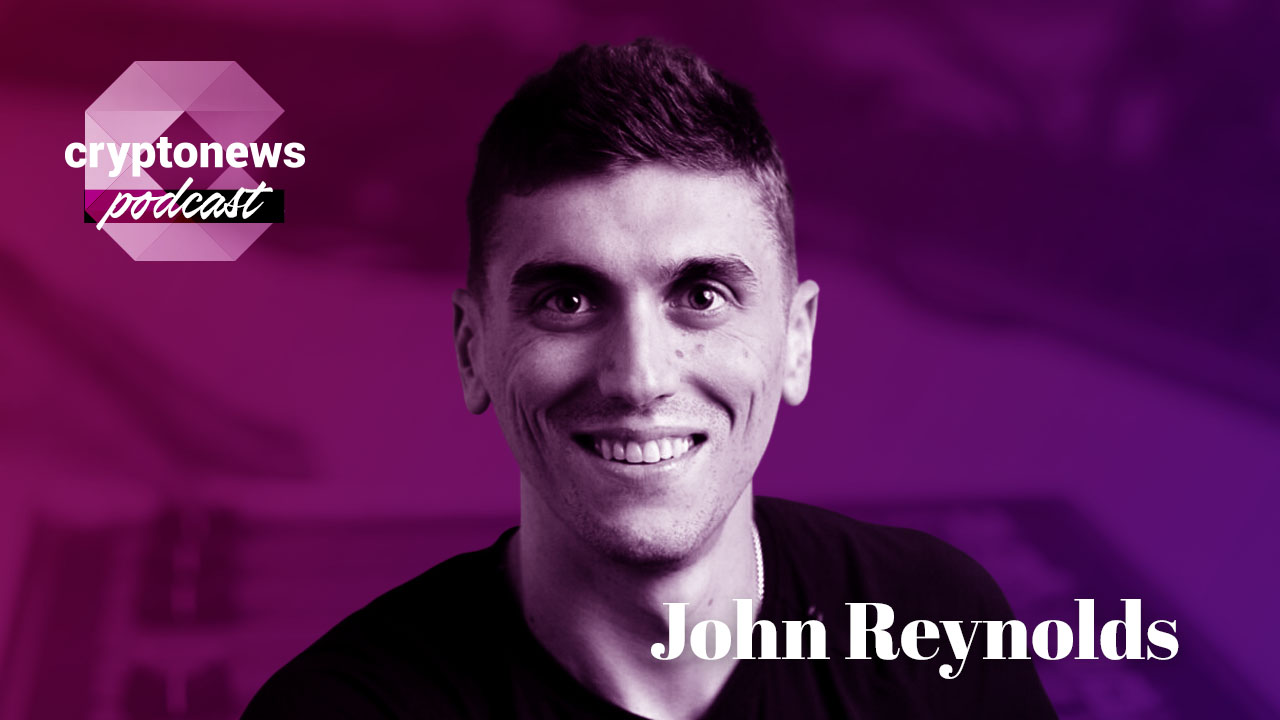
In an exclusive interview with cryptonews.com, John Reynolds, Product Manager for Aleo, talks about common misconceptions about ZK technology, John’s background in the US Air Force, and applications + use cases for ZK technology.
About John Reynolds
John Reynolds is a Product Manager for Aleo with years of experience as a cybersecurity professional. After 3+ years in the United States Air Force as a Cyber Operations Officer, he gained an understanding of the need to safeguard autonomous systems apart from central authorities while also upholding privacy and fostering accountability.
At Aleo, John is responsible for product development and project management. Prior to joining Aleo, John was the Strategic Deployment Lead for Blend. He holds a bachelor’s degree in Computer Science from the United States Air Force Academy and a master’s degree in Software Engineering from Southern Methodist University.
John Reynolds gave a wide-ranging exclusive interview, which you can see below, and we are happy for you to use it for publication, provided there is a credit to www.cryptonews.com.
Highlights Of The Interview
- John’s background in the US Air Force, and his journey into the crypto industry
- What is the grand vision for Aleo? Unique differentiators, use cases, progress to date
- Z-Prize; Aleo’s hardware-based ZK competition
- Zero-knowledge proofs: applications, use cases, and common misconceptions
- Identity and Privacy + safeguarding personal information
- Common misconceptions about ZK technology



Full Transcript Of The Interview
Matt Zahab
Ladies and gentlemen, welcome back to the Cryptonews Podcast. It's your host, Matt Zahab. We are buzzing as always, and I am super pumped to have the one and only John Reynolds on the show today, Product Manager for Aleo. John is an absolute ZK tech expert with years of experience as a cybersecurity professional. After three plus years in the United States Air Force as a Cyber Operations Officer, he gained an understanding of the need to safeguard autonomous systems apart from central authorities, while also upholding privacy and fostering accountability. At Aleo, John is responsible for product development and product management prior to joining Aleo. John was the Strategic Deployment Lead for Blend. He also holds a bachelor's degree in Computer Science from the one and only United States Air Force Academy and has a master's degree in Software Engineering from Southern Methodist University. Never heard of that place, but I'm sure it was a treat. John, welcome to show my friend Pump to have you on.
John Reynolds
Yeah, thank you so much. I'm super excited to be on. Appreciate you going through all the accolades. Super excited to be here. Yeah, I have kind of an interesting background. You know, our CEO at Aleo actually is also military. So he went to West Point. So him and I have a nice rivalry during football season. He was a Green Beret though. So he kind of has me on some of the foot traffic legitimacy. But yeah, glad to be here. Excited to talk about ZK and Aleo and you know, how these can have a massive impact on the world of computing as we go forward.
Matt Zahab
I love that. It's sort of standard protocol standard procedure on the Cryptonews Pod. I'd love to jump into the start of the show, which is you before we get into Aleo and ZK Tech and all the nitty gritty crypto stuff. Obviously the standout thing on your background is being a United States Air Force member. Thank you for your service. Even though I'm Canadian, I still obviously love everything military related in the States. And if someone were to ever invade us, I mean, we're calling you guys first. So we need you guys to selfishly, obviously. But besides that point, I'd love to get into some story time, pretend we're around the fire, get old nighttime campfire, maybe a couple of pints shooting the shit, telling some stories. You've got to give me some good Air Force stories, whether it was being at school and going through the grueling training or actually being deployed, whatever the case may be. But John, you got to kick us off with some good military stories before we get into the nitty gritty crypto stuff.
John Reynolds
For sure. Well, I actually worked at a joint Air Force base when I was like first stationed and it was an American and Canadian base. So it was in Colorado Springs, Cheyenne Mountain. So I got to work with a lot of Canadians as well. So I'm a big fan of the Canadian Air Force and it's been, you know, it was fun getting to work with those individuals too. Yeah, the Air Force was, it was exciting. I actually went to Texas A&M for a year before I transferred to the Academy because I was doing track and field. So before all of the crypto stuff and cybersecurity, I was actually a track and field athlete. I was a triple jumper and a high jumper.
Matt Zahab
You got hops.
John Reynolds
So I got hops. Yeah. So I still actually have the school record in the triple jump at the Air Force Academy, which is pretty exciting. Honestly, like I think the coolest probably story that I have, or maybe like the most interesting as it relates to, you know, our discussion today is, you know, some of the trials and tribulations that I ran into while I was at the academy. So after basic training, I actually had a what's called a pulmonary embolism. So it's a blood clot that's in your lung. And as a result of this, like, you know, it can be, you know, very life threatening. And they found out, you know, I had some predisposition to blood clotting. But as a result of this, like they were going to try and kick me out of the academy. They're like, you know, we can't risk having you stay in the Air Force. We're, you know, we're going to have to medically discharge you. So you go through like this series of appeals, and you sit in front of like these different generals and try and plead your case. And so I was like dead set, I'm going to figure out a way to get them to allow me to stay like to get them to let me finish my education at the academy and become an officer. And so I started to look into like, what are the need that the largest needs of the Air Force right now. And you can see kind of like the different personnel realities that exist in different career fields. And what I saw was that one very small portion of individuals from graduating classes at the academy were graduating with computer science degrees. And then one of the largest personnel shortages was around cybersecurity. And so I thought, okay, I'm going to figure out a way to funnel my focus and energy into becoming something that can be extremely valuable to the Air Force from like a technical and, you know, job opportunity perspective. While also still trying to shine athletically. So like, look, I'm in shape. I can do all of this stuff, the physical standards and better than some of the, you know, my peers. But also, hey, like I have maybe this education that could be unique and special and valuable to the Air Force. And it only requires me to sit behind a desk. So that's what I did. And ultimately, I was able to plead my case to a board of generals and they let me stay. And so I was able to finish my education at the Air Force Academy and then and then commission has an officer where I had, you know, now the blessing to serve and get like a ton of skill sets and in the real world. And I actually got stationed like I mentioned earlier in Colorado Springs, Cheyenne Mountain. And this is one of like the, in my opinion, like the coolest Air Force bases that exists. Because it's literally inside of a dugout mountain. It was a cold war shelter back in the day. So for like nuclear explosions, the idea was like, you could take like high valued individuals and they could be protected in this blast or facility that could survive a nuclear attack. Crazy facility. Some people listening may have heard of this. Stargate, it's all often called, we've seen this in different movies. But yeah, we're inside a mountain and I was helping to like direct different information from satellites relating to missiles and aircrafts and air traffic. So I worked alongside NORAD. Again, some people might know the Santa Tracker, but North Atlantic Air Defense System.
Matt Zahab
That's so cool. Is that the building that looks like a big church almost? I just Googled it.
John Reynolds
Okay, so the Air Force Academy has like a notorious like church that's like very popular for people to go visit. And then just like probably like 20 miles behind the Academy, there's like a huge peak, Cheyenne Mountain Peak. And they've literally dug out the inside of this and they have like, I mean, several stories of buildings and tech and it's a full operational facility like thousands of people back in the day. Yeah, inside of the mountain, no windows, nothing.
Matt Zahab
That's crazy. I love that. So what a great story to lead. So just again, just putting two and two together, you gain this incredible tech experience and security experience, working for the United States Air Force. And obviously I feel like that's a job where you don't really get second chances. Like if you know, if you screw the pooch, you're done kind of thing. You're on top of your game. Walk me through the sort of trajectory and joining forces to Web3 and crypto. So did you learn about ZK tech there? Were you working on crazy privacy tech that just led to, you know, present day you joining Web3? Like what was the whole spiel in that regard?
John Reynolds
Yeah. So I think I start, I was doing a lot of deep work in networking. And what you start to realize when you're networking is all of these nuances that go into data security. It's like sending data, data at rest, and I didn't have a huge crossover into crypto yet when I first initially got out. But I was well aware, okay, there's these systems that are protecting international safety, which is one part of this. But then there's also like our citizens, like our people who have like personal information. And if like the problems are the same, right? Like maybe the outcomes or the impact if somebody like steals this international classified information is much larger. But like what's allowing this to be stolen at the base level is very similar. These paradigms exist all over in different capacities across the web. And so I think I got out of the Air Force and I started working for a software startup in the mortgage space blend. And I was helping some of their strategic partners in banking with a KYC solution. And I immediately started to realize like, look at how much friction this the compliance and regulatory aspects here are creating for the tech. It's like, we can't even provide a meaningful user experience, because it's like, there's so much regulation. And like, and like the way the tech is architected, it's just not, it's just not easy for it to like meet those. That was kind of that moment where I was like, maybe like, I need to try and do something about this, right? Maybe like, this is like the direction that like, I should start focusing more of my energy, because this feels like it could have a very substantial impact. So I started kind of like messing with Ethereum. I started mining before proof of stake. I was mining Ethereum. I feel like most people will say this. So maybe it's a little cliche, but I was mining Ethereum in my basement, trying to just kind of understand like what this whole blockchain crypto thing was. I'd been like a little bit jaded by it earlier on, just because I just didn't get it. Like, I was like, this seems like the currency aspect was a bit confusing. There's like, I don't know, the blockchain ledger, all these big words were a little bit like, wait, what? Like, is this just the facade? But you know, I thought, okay, I need to get my feet really wet. So started diving in. I built a gaming application actually on Ethereum called Fishbags. It's just like a simple, smart contract NFT that allows you to play a mini game and save your score for your NFT and update it on chain. So you could have this NFT and it's associated with some gaming score. So that was kind of like my first chance, like, okay, I see like, there's like a larger opportunity here for like really making a meaningful impact to how people interact online. And then that's what kind of drew me. And I met Alex through like a connection in the military and he happened to be the CEO of this ZK company. In that time, I didn't know a ton about ZK outside of just like the privacy preservation aspects. From there, it's just really, I dived in deep. I did a hackathon in Portugal when I first started with Aleo. And that kind of launched me into actually like focusing on some of the identity and identity related product concepts for Aleo.
Matt Zahab
I love that. That's a great story. Before we get into Aleo and ZK Tech, just to sort of set the stage, I always love asking non crypto questions, especially when it comes to privacy, because we have so much privacy and data that's spread so far and the reach is so large and wide and we have no clue what and how and everything about our data. It's out there, it's everywhere. You are obviously a privacy expert. What are some of the like most no brainer, but non obvious things that the average Joe or Josephine should do to sort of level up their privacy game a little.
John Reynolds
I think one of the biggest ones, and I'm a victim of like forgetting to do this, but if you're on public networks, turn on your VPN. If you're on public Wi-Fi, like you should be using a VPN. If you're at the airport, if you're at the airport and like you're about to get on a flight, you have to do something real quick on your computer, like take the extra couple of minutes to turn on your VPN. I think like we too heavily rely on the frameworks and infrastructures we're using. And we should, like there needs to be a dependence. Like I personally think and this is subjective, but I think that, you know, there needs to be a foundational understanding of security for users. But I think that there is a reliance that the infrastructure and the platforms are doing the majority of the thinking for us. Right? So like, I think it's fair to make those assumptions, but also like you should better equip yourself if like you're working with sensitive information. So yeah, I think the VPN thing is a big one. And then like, yeah, just like don't like, don't use your passwords. Like everyone does this. Do not use the same password over again. There's so many tools now in place and even unfortunately, like they're vulnerable to getting attacked as well, obviously. But like you're going to be better safeguarded if you have like, you know, separate passwords. You're not using the same exact stuff across the board.
Matt Zahab
Yeah, use a password manager. One that I always say is anything finance related where it's like and again, most people when it comes to privacy, I feel like the biggest and baddest is if they get a hold of your bank account and knock on wood. Thankfully that I'm fortunate that I haven't been subject to any crazy attacks yet. I'm sure they will happen. But guys and gals do not please for the love of God, do not have face ID for any banking or crypto apps. If you have a Web3 wallet on your phone and it is connected to your face ID and you get mugged one night or whatever the case may be, all they got to do is a quick little boom and the floodgates are open and it's crypto. It's not your bank. You can't call crypto and be like, Hey, this is what happened. You know, once the transaction takes place, it's gone before we move on any other very basic sort of non obvious privacy tips that you recommend.
John Reynolds
I think that those are good ones, honestly. There's always something else that pops up. Someone's done something silly, but I think like most of it is just kind of common sense and slowing down. We're always in such a rush. Sometimes we need to slow down. Oh, actually, you know what? I have one more, that's good. Be thoughtful about backup emails that you have in place for different platforms. Because I think one of the social strategic attacks is like, if I can find an account where you've used an old email where maybe you don't have it as protected and I can access that, then I can force a backup password reset to that and then I can get into the main account and then we have an open door. So I think that's another good one to call out.
Matt Zahab
Yeah, really good call there. Okay, time for crypto time. Let's get into Aleo in the start of the show. But before Aleo, and I've asked this question so many times on the pod, this is something that I do understand but still need to do my homework on. And that's ZK Tech, zero knowledge proofs. Every single guest who's come on and is an expert in ZK Tech, describes it in a different and nuanced way, which I love, because again, when you're describing something as complex as ZK Tech, you gotta use analogies. You gotta like show the actual use cases. If you just talk in the, you know, Web3 security, verbiage and lingo, a genius isn't gonna understand this stuff, right? So, John, I'm throwing the ball over to your side of the court before we get into the nitty gritty. Give me like the TLDR elevator pitch primer on ZK Tech and why it's going to be so important moving forward.
John Reynolds
Yeah, absolutely. So ZK Tech, I think at the highest level, the idea is like you can prove you know something without having to reveal what that is. I focus on like the identity side. So I think like a good analogy for me is like, you go to a concert, let's say, and the concert has different vendors that are serving alcohol. And so when you first go into the concert, you show your driver's license to somebody and they look at it, they feel confident that it's a legitimate driver's license. And they see your age and you're over the age of 21. So what they do is they give you a wristband. The wristband signifies that you're over the age of 21. And now you can go up to all of the different vendors within you know, the concert and you can just show them your wristband to receive alcohol. And so in this essence, like you're proving to these different vendors, hey, I am over the age of 21. I have been verified and I have the right to be able to receive this service or this product or you know, for this instance, a beer. And so this is like a very good example in my opinion because what it does is it shows you the different players involved. So the people when you're going in through the concert, this would be like an issuing authority. So like in the world, we have a variety of different authorities that we trust just innately because they're the government because of the reputation that they hold. And so, you know, when you're going through the concert, you show your driver's license and you know, the government is the issuer in this case, but the person looking at this verifies you and then issues you the wristband. And so for the concert, the vendors view that wristband as a trusted issuance of a credential, proving your age and that you're the right person to be able to receive these funds. And so ZK is similar in this essence, right? I can prove certain things about myself. And then I can provide representations that convince other people, hey, this is legitimate. That person has been verified without exposing it in my personal information. So none of these other vendors to give me a beer need to know that my date of birth is, you know, whatever and my address is this and my nationality potentially my eye color. All of that's irrelevant. They just need to know, hey, this person is over 21.
Matt Zahab
It's binary, it turns a complex privacy based situation into something binary without disclosing all the info that's needed. It is John of age yes or no? Is person X, Y, or Z of age yes or no? And it works for, again, a multitude of use cases, but that was a good one. Why do you think people have such trouble sort of understanding ZK tech? Because again, on the front end, what you just described, it makes sense, but like on the back end, and we'll get into this, the whole tech is crazy in how different validators need to speak with each other and everything. It's just, it's not easy to understand, is there anything we can do, or will ZK tech be much more consumer friendly moving forward? Like what is the future of this look like?
John Reynolds
Yeah, that's a great point. And I think one of the things that just gets to me when I talk to people about crypto is there's value in understanding things at a high level. But I also think we have to respect the reality that some individuals are meant to build these things. Some individuals are meant to build these things. And then some individuals are meant to actually just speak to them and simplify it so that consumers can understand. But a great example of this is transport layer security, like HTTPS. Nobody, I don't have a single friend that understands TLS, transport layer security, or SSL, or where did HTTPS come from and how does it provide us a safe means to interact on the web?
Matt Zahab
I don't get it either. I just know when I look at my, you know, my Chrome tab up there, my Brave tab, when I see the, when I see the, like the green little certificate, I want to save site. That, I don't know how it works though.
John Reynolds
And the thing is you don't need to, you know, it's good to understand and like, you know, as things evolve, more, more reputational trust accrues. And so it's like, it becomes more natural to not feel like, oh, I got to know exactly what's going on or else it's not secure. There's that piece of it. But then I also think like there's a lot of puzzles to ZK that people are mixing into one even though they're separate pieces. And so like zero knowledge circuits and the computation portion of zero knowledge, like providing inputs, like private inputs, running a computation on those inputs and then having some output. That is like the end to end aspect of like producing a zero knowledge proof, producing a proof of execution. But like this is a closed system if you think of it as a single unit, right? So like now we have to think, okay, I've created a proof. How can I share that proof with somebody? How can I receive proof from somebody? How can I verify a proof that I received? And so there's operational realities that exist and engineering realities that exist that aren't always delineated when we talk about ZK at large, right? We think like, oh, ZK is like, you know, all of this and it's not ZK is one piece of the puzzle. The communication aspect of all of this is a larger piece that requires not just Web3, but also aspects of Web2. So people have something to go and access, right? On the internet, some sort of gap. Yeah, I think that's one of the reasons. Like we try to boil the ocean with ZK. If we actually kind of got a little bit more narrowed with our focus, but still stayed high level with the explanation, people might have a better shot of getting some of this.
Matt Zahab
Well said. I also hate the name. I mean, it's like blockchain. Like what the hell does blockchain mean? At least blockchain makes some sense because, but then again, I guess ZK does as well because it's zero knowledge, but it's just one of those words where it's like, it's such a big and scary word that it almost veers away a lot of the people who perhaps would have dabbled and wanted to learn a little bit. They're like, ah, this is way above my pay grade. Screw it, I'm out. You know? Things you gotta work on in the future. But John, we're gonna take a quick break and give a huge shout out to our sponsor of the show, PrimeXBT. And when we get back, we're going to get into the start of she show, Aleo. Unique differentiators, use cases, progress to date. Talk about the Z-Prize, and I can't wait to get into that. But until then, huge shout out to PrimeXBT, longtime friends of cryptonews.com and longtime sponsors of the Cryptonews Podcast. PrimeXBT offers a robust trading system for both beginners and professional traders. It doesn't matter if you're a rookie or a vet, you can easily design and customize your layouts and widgets to best fit your trading style. PrimeXBT is also making a huge promo for the listeners of the Cryptonews Pod. CRYPTONEWS50 is the code that is CRYPTONEWS50 to receive 50% of your deposit credited to your trading account. Again, that is CRYPTONEWS50 to receive 50% of your deposit credited to your trading account. Now back to the show with John. Mate, let's jump right into it. Aleo, give us the TLDR, the elevator pitch. Unique differentiators, use cases, progress to date. You name it, and then we'll get into Zee Prize and some other fun stuff, but the floor is yours.
John Reynolds
Sweet. So Aleo is a Zero knowledge Layer-1 blockchain. And there's a bunch of really great things that it does from privacy to also like unlimited run times of scalability opportunities. And honestly, I personally believe like, you know, I've done a fair amount of development on Ethereum. I think some of the solutions, the ZK solutions that are getting built on Ethereum are impressive. But I think from a developer perspective, if you want to be working with something that's more natively introducing these privacy preserving aspects, Aleo is the way to go. We are based off of what's called the ZEXE model, zero knowledge execution. And so the idea is we push all of the proof generation portion of the execution of programs or smart contracts. We push that off chain. Users are able to run either on their local commodity hardware or outsourcing it to like highly efficient hardware. They're able to execute these programs with their own private inputs and then produce a zero knowledge proof and then an output. So the proof is proving that the program executed honestly, according to how the code is structured in the smart contract. And then the output is what the result of running that program is. So you have proof that it was run honestly, and then you have an output. And so if we verify this proof and it comes back saying, yes, this is valid, then we can trust the output of this execution, the output of executing the program. And so that's another thing that I think is often left out in some of these like thought processes. But yeah, again, like that's pushed off chain. And so essentially like you could run a program for eternity and then finish running it, bundle that into a single proof, integrate that into a transaction and send it to Aleo, send it to the blockchain, validate our nodes, verify the proof that's in that transaction. And then that gets published to the chain where any third parties can go and verify the validity of that proof. And the value of the zero knowledge aspect here is that anyone can verify it, but the proof is zero knowledge. So nothing of relevant value is output unless it's added as a public output. And so like it provides the privacy, but then the verification guarantees too, which is huge, right? Like you don't need to know anything about me just enough for what you need me to give access or you need to give me access to what service you're offering. But Aleo, we're still in testnet phases. We have mainnet coming at the end of the year. And again, like this is really like the opportunity for developers to get their hands dirty with ZK with a Layer-1 blockchain. And with a lot of different opportunities that you can avoid like gas, for instance, is another one you get to avoid on Aleo. So a lot of opportunities for building privacy and compliance into applications on chain.
Matt Zahab
Then correct me if I'm wrong, but Aleo is a developer based platform, right? Like you're not going after the guys like me who can't code, you're going after developers and providing them with bulletproof ZK tech so they can then build these dApps with ZK tech in them.
John Reynolds
So yeah, I think twofold. Like one, I think that the primary target is developers. So that way we can provide them with the toolkits to build out these applications that hopefully can start to reshape these different frameworks and dynamics of the web. But we also actually have developed a language, a DSL, a domain specific language called Leo. And so what Leo is, it extracts all of the confusing stuff. So like if you're a developer, you know, maybe not like a super skilled senior developer, you don't really understand ZK in depth, but you want to start leveraging this tech. We have this domain specific language that which I think gives you an upper hand potentially in like the space because like, you know, if you're not super skilled and like ZK is new. Like so you could become an expert without having to like become an expert in coding.
Matt Zahab
Yeah, and this is all done on Leo and that's your guys. Well, I mean, I just Googled it, but on your website, actually, aleo.org, it's a functional statically typed programming language built for writing private applications. Interesting.
John Reynolds
Yep. And so what happens is like you code at this high level, it compiles to AVM instructions, which is like a low level code form. And then that gets synthesized into what's called R1CS or rank one constraint system. And those are systems of equations. And so those are like, this is, you know, obviously, we're getting a little bit more technical here, but these systems of equations are essentially these circuits that allow us to prove and verify information without having to actually know the information itself.
Matt Zahab
Interesting. So what's the grand vision for Aleo? Like what's obviously there's a couple, not a couple, there's dozens of companies in the ZK tech space. Talk to me about what makes you guys different and a lot of use cases down the road.
John Reynolds
Yeah, I think right now, you know, we're laser focused on getting live, getting mainnet live by the end of the year. You know, there's a lot of moving pieces to this. We're very close. We have a series of audits that we go through, um, and then we'll have like the final adjustments before, before going live from there I think, you know, the opportunities are really endless. We have a product focused kind of org within Aleo that like I said, I'm specifically focused on the identity piece and subjectively. Again, I'd say that like I see a ton of opportunity, but also I think that this is like the core of the applications infrastructure outside of like the blockchain piece. Like we have to be able to identify people who are using our applications. And so making sure that there's a framework to allow for that, that really nicely integrates with like these ideas of ZK. It's important and it's also complex. And so I think like the identity piece is a huge one that will be a big focus going forward once the blockchain is finalized and we were able to launch mainnet. But for me personally, yeah, that's also our focus and then expanding developer toolkits and trying to continue to strengthen opportunities for new developers and existing ones to start building.
Matt Zahab
Yeah, well said. I love the privacy aspect as well. A bit of a cop out question on my end, so I apologize in advance, but dream client, would it be like identifying age for the US government? Would it be age identification for someone like Ticketmaster, who has just such a crazy monopoly on all ticketing in North America? I probably worldwide too, but definitely North America. Would it be some type of bank with a KYC system? Like what's John's dream client?
John Reynolds
Sure. Yeah. I mean, you hit on like some really good industries and verticals that could be focused on and that could also be supported by ZK. I think the KYC one is a really great one, being able to like identify different thresholds around identity and anti money laundering to help, you know, individuals get verified in privacy. So platforms don't have to worry about all this user data, you know, overflowing there and having to secure and manage that too. It's just like it becomes expensive. So there's like a user benefit for privacy, but then also these platforms like don't have to. But yeah, I honestly like you brought up like the US government and not to go back to the stories, but like I do have a personal affliction around this. I had my top secret security clearance compromised in the OPM, the Office of Personnel Management hack that happened in 2000. And it was either 2013, I believe, yeah, 2013 over, I think like 20 million military records were compromised. Our CEO, Alex, his were compromised as well.
Matt Zahab
How does the US military get hacked? Like, that's like, besides the US government, that's like the biggest organization in the world. Like, how does that even happen?
John Reynolds
That is exactly the question that I asked myself. But the answer is, it's a honeypot and centralized servers in general act as honeypots and the greatest honeypot is the US government's honeypot. Because who doesn't want to just be able to flex and say, Hey, we got in. I mean, seriously, like these, that's what these four nations, like they love that. They just, they don't even, like the first big flex is just, Hey, we're here. Now what? Get ready for the show. So yeah, I think like we are creating centralized servers that are acting as honeypots and decentralized tech can help spread that attack surface across individuals to make it way harder to realize this massive amount of value by getting in. But then ZK can even add an additional layer of security that gives people personalized control. Like this is a very user centric model. The idea is like you as the user hold information about yourself. Somebody asks you to prove information about yourself and then you decide how you want to share, how much of it you want to share. And it may not meet the requirements that person, you know, needs. And then maybe they need you to share more. Maybe you decide you don't feel confident enough to share, but you should be the one deciding that, right? Like you go through an SSO flow and that's not the case. Like Google has your information and then the platform, if they decide to like go under or change things, change the rules on you, it doesn't matter. Like they have it too. Yeah, it's changing. You have no control over that.
Matt Zahab
I just want, when I think about like potential use cases, I think that the ZK tech, and again, I'm probably wrong here. You obviously know infinitely more about this than I do. But I feel like this is one of those areas of crypto or just tech in general, where it's moonshot only. Like a small partnership in my opinion won't really move the needle, but again, a partnership with a government or a Ticketmaster or a JP Morgan, that would move the shit out of the needle. And I feel like it's a dual headed monster because on one side, if it does happen, that moonshot is present. And sort of the discovery phase will almost be non-existent because everyone will use it and love it. But on the flip side, the potential of that moonshot happening is so minuscule that it's like, is it gonna happen? That's just, I don't mean to be a Debbie Downer, but yeah, that's how I feel it.
John Reynolds
I don't think its a downer though. I think there's ways to approach the moonshot strategically for banking. You're right. A small partnership isn't going to move the needle massively, but if you can get a few banks using this, then that might be enough to make the comfort level start to grow and grow. Look at 2020 and 2021. We saw what momentum looks like in crypto and it is insane.
Matt Zahab
Yeah, that's a fast roller coaster.
John Reynolds
Yeah. So like, I think like, I agree, like it is the moonshot, the moonshot's gonna be required to change the architecture in a meaningful way that we can all realize and benefit from. But like, we do need to strategize like around the moonshot, right? Like, okay, maybe there's like some, you know, banks we can start using as proof of concepts. And then that can help make other people in that industry more confident, can shift to healthcare. We can start looking at how people are sharing their records from different hospitals, you know. Huge one, right? Like, if we could just get two that can act as a proof of concept that's saying, hey, look, this is working. Like this is protecting the data and it's making our customer experience better too. And then yeah, like I think just identity verification across KYC is like, you know, just a massive one. Like we're seeing with GDPR, CCPA, there's so many regulatory like pressures that are coming into play. Facebook, they just had that billion dollar fine and they have to come up with some unique strategy for like how the data is getting transferred from the UK to the US, depending on where their users are. I mean, the engineers said something like, they don't know how the tech works. Cause like it doesn't make sense, like what they're saying because of the current paradigms. But ZK definitely helps change this pretty dramatically from like not just the user centric, user control point of view, but also through this like more curated like data minimization opportunity.
Matt Zahab
Yeah, well said. John, this has been an absolute treat. I've had a blast here. Unfortunately, we do have to wrap up soon, and I cannot wait to have you on for round two when you guys launch mainnet in a couple months. But we got to do the hot take factory, my favorite segment of the show, you and I jump in the hot take factory and let a couple of hot takes fly. It doesn't have to be crypto or ZK tech related. Can be health, wealth, happiness, alien, space, AI, you name it, but give me a couple of John hot takes before you go. Give the listener something spicy here.
John Reynolds
Oh gosh, hot takes. Oh man, okay. Hot takes. You gotta give me a second here, Matt. Let me think.
Matt Zahab
Yeah, you can, I mean, I'll give you a couple of mine right now. One, as always, I'm a big believer of happiness is a choice. And that definitely pisses people off. But like I think at any given moment, you can just fake being happy and eventually be happy. I think hangovers are a choice. I mean, I've had some pretty rough nights where I wake up the next morning and it's like, okay, I can, you know, if it's a Saturday night, go out, Sunday morning, wake up, I can sit on the couch and watch 12 hours of lovely God bless NFL Sunday in order to pizza and just be a fat sack of shit. Or I can, you know, I can take a cold shower. I can go for a run. I can hit the gym. I can sweat it out with a sauna, drink some electrolytes. Like those are two. I also think the whole, you know, all the UFOs and everywhere. I think that's got to be the US gov. I know you're a gov guy, you're a military guy, but that's got to be the military with some new crazy tech building shit in mountains, like where you actually worked. So those are a couple of mine.
John Reynolds
Okay, all right, fair enough. All right. Yeah. So I think, all right, I have some hot takes. Yeah. So I think the crypto market in general, like the engineers and stuff, like one of the big things in my opinion that can help us is like figuring out a way to avoid some of these like massive waves. I think the waves of crypto is like the killer of crypto.
Matt Zahab
I agree. Yeah. slow and steady focus. Crypto's all about like how can you get from zero to one as quick as possible when I think it should be like go from zero to point one, point two, point all the way up. Like slow and steady wins the race. It's a marathon, not a sprint. I completely agree with that.
John Reynolds
And then yeah, the stigmas, like the stigmas in crypto, like our stigmas that exist everywhere else, we're just not vetting the people as much. Like I think that's another big one that I just can't stand. And then I think my biggest hot take of all is like you decide what your outcomes are. And I don't care like what your situations are, where you come from, there is always an opportunity to make the best of your situation and then to dream bigger. And I internalize that every single day. I went through that life threatening situation when I was at the academy. And I thought everything was gonna get taken from me. I thought I meant to, I worked so hard to get to the academy. Now I have something that I have no control over, like it just happened to me. You don't have to continue to live that roll out. Like you can start to think bigger and push forward. And I think internalizing that can change your life.
Matt Zahab
I love one of my buddies says this, you know, whenever, he'll ask something and then if we say no or whatever, it'd be like, come on, he's like, who do you report to? He's like, you're the CEO of your own life. You can do whatever the hell you want. And it's, you know, he usually says that when he's trying to get us to like go out on a Saturday night when, you know, I'd like to have a chill night in with the lady or something. And then he's like, he's like, Z, come on, you're the CEO of your own life. Who do you report to? So obviously bad example of the context, but at the end of the day, it's true. Like, you know, you're the own boss, you can do whatever the hell you want. You can create an incredible life or you can create a shitty life. You know, some people are more blessed like you and I than others. We probably started on second or third base, right? Whereas there's tons of kids in the world who start at, you know, not home plate is in home run, but like literally got a battle to get to first. So make the most of it and go from there. I love that one. That was good.
John Reynolds
Yeah, put your goal out there. Don't have any sort of expectations on what's gonna happen to get you there, but just keep focused on that goal and you will get there and you'll be surprised on how.
Matt Zahab
Yeah, just a couple of 15 minute chunks a day, consistency and momentum, baby. John, this has been an absolute treat, cannot wait for round two, and hopefully can meet in person one day. Before we let you go, can you please let our listeners know where they can find you and Aleo online and on socials.
John Reynolds
Yes, again, thank you so much, Matt. It's been a pleasure. Super fun conversation. You can find me on Twitter @gweiworld, so G W E I World. You can find Aleo, aleo.org.
Matt Zahab
That's such a good handle.
John Reynolds
I'm on medium too. I do some blogging, just like some personal stuff. And that's also Gwei World. So follow me, follow Aleo. And then we didn't get to touch on Z-Prize, but maybe next. But yeah, follow Z-Prize.
Matt Zahab
Sorry, throw that in quick. My apologies.
John Reynolds
But Z-Prize is an international competition. We get the best developers and engineers around the world who are focused on ZK. All of the different verticals from hardware, software, cryptography, and we bring all of these players together for a six month competition, half a million dollars in prizes for each category. The first one we did, seven million in prizes this year. I think we're doing like three, but yeah, to motivate the problem. You got to put a big care in front of these individuals who are some of the most impressive engineers in the world, honestly. So check out Z-Prize. We're in the midst of this year's competition right now. If you're listening and you're a great engineer and you know hardware, you know Wazum, you know anything around ZK and you're interested, you can still join in. Yeah, so, there's a big opportunity.
Matt Zahab
John, thank you so much. Truly a pleasure. Can't wait for round two, man.
John Reynolds
Thanks Matt, all the best.
Matt Zahab
Folks, what an episode with John Reynolds from the one and only Aleo. What a treat. Learn so much. Love the military stories. And as always, I have so much homework to do on anything ZK tech related. Folks, as always, thank you for listening. Hope you enjoyed this one. If you did, please do subscribe. It would mean the world to my team and I. Speaking to the team, love you guys. Thank you for everything. Justas, my amazing sound editor. You are the GOAT. I love you, man. And back to listeners. Love you guys. Keep on growing those bags and keep on staying healthy, wealthy and happy. Bye for now and we'll talk soon.


